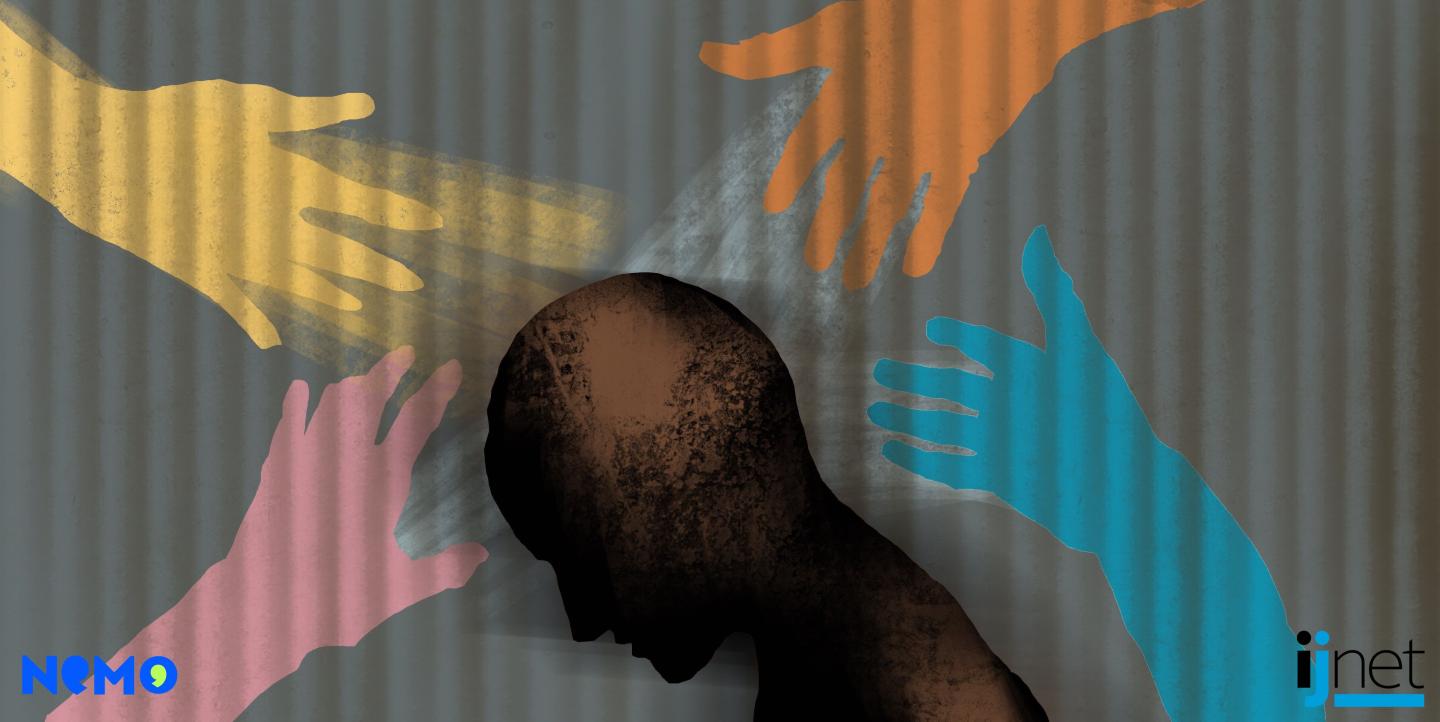This resource is part of our Exiled Media Toolkit, produced in partnership with the Network of Exiled Media Outlets (NEMO), and with the generous support of the Joyce Barnathan Emergency Fund for Journalists.
For journalists living in exile, emotional stress and trauma cannot be discounted. Leaving one’s home is never easy, and the mental toll is more excruciating when forced to flee. This is bound to add to the stresses of reporting in exile.
Mental health, while more talked about today, is still under-represented in many newsrooms’ policies and setups.
Journalists in exile often feel a sense of exceptionalism in relation to their mental health struggles – that because their situation is unique, others can't relate to what they’re going through. While there is some truth to this, there are still many shared struggles that can be addressed separately from the challenges of exile.
Here are three levels of support to consider when looking after your mental health as a journalist in exile:
Organizational
For exiled media outlets, it’s important to create spaces for your editorial team to recharge and seek support. This can be done in several ways:
Flexible work settings
If you have a physical office where a majority of the team operates, consider implementing a flexible work from home policy, too. Offering employees plenty of face time with each other through a physical space, but with the flexibility to design their own days when possible, can go a long way to bolstering self care and affinity for the workplace. For predominantly remote teams, consider implementing flexible work hours.
Communal events
These don’t have to be big. A monthly lunch if most of your team is based in the same city, for example, or a monthly Friday after-work virtual drink can do wonders for your team’s mental health. If the pandemic taught us anything, it is that finding fun activities to do with a remote team is both possible and easy to implement.
Psychosocial support sessions
If possible, organize group support sessions with professionals at organizations such as the Dart Center, who have specific expertise in helping journalists with their mental health. These sessions, tailored to the challenges journalists face, can often be useful for learning new tools for self-care and group support.
Group
Consider implementing support spaces that journalists can hold for their team. This requires some initial training and capacity building to do safely and effectively. These spaces can take the form of informal calls or pre-scheduled meetings.
Support spaces give journalists a dedicated forum to share their feelings, thoughts and struggles while in exile. It’s important, too, to set expectations: unless the individual facilitating the session is professionally trained in psychosocial care, finding concrete solutions to issues brought up by your fellow journalists may not be possible.
However, the individual who facilitates these spaces can still serve as an “insider” who is aware of the dynamics within the team, can navigate interpersonal relationships, and can help develop a common understanding of one another's struggles on the team.
These sessions can be cathartic and they require little resource investment. They can be beneficial in the long-term for your team’s collective mental health.
Individual
Individual journalists should feel free to seek therapy or support on their own. Organizations can encourage this by having a mental health support budget line that can cover some of the expenses incurred by journalists seeking therapy. Organizations can also maintain a roster of vetted therapists for their journalists.
The above tips aren’t resource-intensive, and don’t substitute for professional psychological support. However, teams that implement them can go a long way toward improving the overall mental health of their workplace, and keep their team functioning and cohesive through the most difficult trials of working in exile.
Further resources
Self-care tips for journalists, from The Journalist’s Resource
Resources for Journalists Coping with Trauma, from the Dart Center
Mental Health and Journalism Toolkit, from IJNet
Sudeshna Chanda is a Program Officer and Marketing Manager at Zamaneh Media (ZM), an Amsterdam-based Persian-language exiled media outlet.

